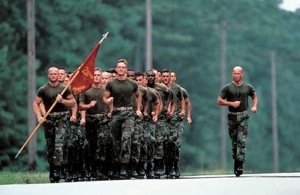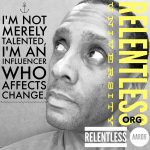Note: Before you read this, let me preface the data with the reality; many of these references are but intellectual fodder – notes from someone, or a few someones who “think” they know the real deal. But lets be clear that thinking you know the craft, the grind and the science and in fact walking the walk leaves a lifetime of distance between the truth and someone’s interpretation of the truth. And your interpretation is subjective according to your emotions.
So take the following with a grain of salt. In other words, shit ain’t always what it seems. This article needs additional citations for verification, but it also needs the thought police to weed out the lies and the smoke & mirrors. Remember I told you so. RA

Wikipedia…
Please help improve this article by adding citations to reliable sources. Unsourced material may be challenged and removed. (March 2009) Urban fiction, also known as street lit, is a literary genre set, as the name implies, in a city landscape; however, the genre is as much defined by the socio-economic realities and culture of its characters as the urban setting. The tone for urban fiction is usually dark, focusing on the underside of city living. Profanity, sex, and violence are usually explicit, with the writer not shying away from or watering-down the material. Contents 1 Genesis and historical forces behind urban fiction, 2 Emergence of contemporary urban fiction, 3 Hip hop lit: hip hop music as an urban ballad, 4 Contemporary street lit: The new wave of urban fiction 4.1 1990s, 4.2 2000-today, 4.3 Criticism, , 5 Authors of contemporary urban fiction, 6 Urban publishing companies 6.1 Corona Sky Productions, 6.2 DC Bookdiva Publications, 6.3 Good2go Publishing, 6.4 Hope Street Publishing, 6.5 Outta Da Blue Publishing, 6.6 Prodigy Publishing Group, 6.7 Q-Boro Books, 6.8 Teri Woods Publishing, 6.9 Triple Crown Publications, 6.10 Urban Books, 6.11 Urban Literature, , 7 References, 8 Research articles, 9 Books, 10 External links 10.1 Reading lists, , Genesis and historical forces behind urban fiction: Contemporary urban fiction was (and largely still is) a genre written by and for African Americans. In his famous essay “The Souls of Black Folk,” W. E. B. Du Bois discussed how a veil separated the African American community from the outside world. By extension, fiction written by people outside the African American culture could not (at least with any degree of verisimilitude) depict the people, settings, and events experienced by people in that culture. Try as some might, those who grew up outside the veil (i.e., outside the urban culture) simply could not write fiction truly grounded in inner-city and African American life. City novels of yesteryear that depict the low-income survivalist realities of city living can also be considered urban fiction or street lit. In her book, The Readers’ Advisory Guide to Street Literature (2011), Vanessa Irvin Morris points out that titles considered canonical or “classic” today, could be considered the urban fiction or “street lit” of its day. Titles that depict historical inner-city realities include Stephen Crane’s Maggie, A Girl of the Streets (1893), Charles Dickens’ Oliver Twist (1838) and Paul Laurence Dunbar’s The Sport of the Gods (1902). In this vein, urban fiction is not just an African American or Latino phenomenon, but rather, the genre exists along a historical continuum that includes stories from diverse cultural and ethnic experiences. Emergence of contemporary urban fiction: In the 1970s, during the culmination of the Black Power movement, a jailed Black man named Robert Beck took the pen name Iceberg Slim and wrote Pimp, a dark, gritty tale of life in the inner-city underworld. While the book contained elements of the Black Power agenda, it was most notable for its unsparing depiction of street life. Iceberg Slim wrote many other novels and attained an international following. Some of the terminology he used in his books crossed over into the lexicon of Black English. Other writers included Donald Goines and, notably, Claude Brown’s Manchild in the Promised Land, which was published in 1965. Also published that year was The Autobiography of Malcolm X. Because this non-fictional read captured the realistic nature of African American urban life for coming-of-age young men, the book has consistently served as a standard for reading among African American teenaged boys. Hip hop lit: hip hop music as an urban ballad: During the 1980s and early 1990s, urban fiction in print experienced a decline. However, one could make a cogent argument that urban tales simply moved from print to music, as hip hop music exploded in popularity, with harsh, gritty stories such as “The Message” and “Dopeman,” set to a driving, strident drum-kit rhythm. Of course, for every emcee who signed a recording contract and made the airwaves, ten more amateurs plied the streets and local clubs, much like urban bards, griots or troubadours telling urban fiction in an informal, oral manner rather than in a neat, written form. One of the most famous emcees, Tupac Shakur, is sometimes called a ghetto prophet and an author of urban fiction in lyrical form. Shakur’s early poetry was posthumously complied into a volume entitled The Rose That Grew from Concrete (book) in 1999. Modern hip-hop literature in print form is a thriving and popular genre. Many non-fiction publications from figures in the hip-hop realm such as Russell Simmons, Kevin Liles, LL Cool J, and FUBU founder Daymond John feature prominently in this genre. Well-known female personas such as Carmen Bryant, Karrine Steffans, and shock jock Wendy Williams have written blockbuster books for this audience. Both Steffans and emcee 50 Cent have had such success with their books that they were given their own imprints to usher in similar authors, such as for 50 Cent’s G-Unit Books. Contemporary street lit: The new wave of urban fiction: 1990s: Toward the end of the 1990s, urban fiction experienced a revival, as demand for novels authentically conveying the urban experience increased, and new business models enabled fledgling writers to more easily bring a manuscript to market. One of the first writers in this new cycle of urban fiction was Omar Tyree, who published the novel Flyy Girl in 1996, reissued as a reprint in 1999. The genre gained significant momentum in 1999 with Sister Souljah’s bestseller The Coldest Winter Ever.Teri Woods’s True to the Game was also published in 1999, and became the standard from which the entrepreneurial publishing and distribution of contemporary urban fiction took note. The simultaneous publishing of these three novels created a momentum of readership for urban fiction and carried that wave for years. Thus The Coldest Winter Ever, True to the Game, and Flyy Girl are considered classics in the renaissance of the genre. Sistah Souljah describes the untapped market for urban fiction, and the stereotypes that held it back in its early years: The publishing industry did not realize that there was a huge market of Black readers. A lot of people in publishing fell into the same stereotypes that people in the mainstream fall victim to: that Black people either can’t read or can’t write, or don’t read and don’t write … When The Coldest Winter Ever came out… it took to task those stereotypes and showed that yes Black people love great stories like every other people from every other culture. 2000-today: In less than a decade, urban fiction has experienced a renaissance that boasts hundreds of titles. The newest wave of street fiction is urban Latino fiction novels such as Devil’s Mambo by Jerry Rodriguez, Chained by Deborah Cardona (a.k.a. Sexy) and Jeff Rivera’s Forever My Lady. Major writers of contemporary urban fiction include Ashley & JaQuavis Coleman, K’wan Foye, Treasure E. Blue, Wahida Clark, Anthony Whyte, Erick Gray, Shannon Holmes, Deborah Cardona, Vickie Stringer, Miasha, T.N. Baker, Deja King, Solomon Jones, Nikki Turner, Jeff Rivera, Brittani Williams and the writing duo Meesha Mink & De’Nesha Diamond. Other notable urban-fiction writers include Kole Black, author of The Chance Series One woman’s desperate attempt to escape the grips of a psychotic ex-boyfriend & his murderous drug cartel. *Contains THE RISK OF CHANCE, THE GAME OF CHANCE, plus DRAMA & CHANCE, Which spawn a series spin off entitled Cincinnati’s Finest – The story of four female police officers whose lifetime friendship is put to the ultimate test by a horrific tragedy that forces each of them to prove their loyalty, not only to one another, but to the code of honor they each swore a solemn oath to uphold., released 2013 by Spaulden Publishing. In 2009, the first known urban Islamic fiction novel The Size of a Mustard Seed by Maryam “Umm Juwayriyah” Sullivan was published. Feeling the absence of stories like her own, Sullivan created her novel as a natural evolution of urban fiction, portraying the lives of multi-generational, inner-city American Muslims of various and blended backgrounds. Tamika Newhouse burst on the scene in 2009 with the classic book The Ultimate No-No landing a major book deal only nine months after self publishing. Tamika Newhouse also launched the AAMBC Literary Awards in 2009 that is highly respected among the urban genre. Also that same year, Clifford Spud Johnson came on the scene with his novel “Kalifornia Luv” and then released “Gangsta Twist 1 & 2” in 2011. In 2010, Rahiem Brooks released Laugh Now, and followed up in 2011 with the sequel Die Later and his mystery novel, Con Test: Double Life. Rahiem Brooks is noted for creating the Urban Literary Awards (https://www.urbanliteraryawards.com), which is uniquely broadcasts on Blog Talk Radio with live presenters and award acceptances. There is also an unexpected literary wave to hip-hop fiction and street lit, which was sparked by Sister Souljah. Authors with a book or books in this offering include Sofia Quintero of the Black Artemis Novels; E-Fierce, also known as Elisha Miranda; Heru Ptah; Ferentz Lafargue; Saul Williams; Abiola Abrams; Felicia Pride; Marcella Runell Hall; and Martha Diaz. These are hip hop lit or street lit books that take a more literary approach using metaphor, signifying and other literary devices. These books may also be used in socially redeeming or classroom capacities, while maintaining love and positivity for the music and the hip hop culture. With this new wave of renaissance, “street lit” was breaking new ground when it came to promotion and exposure. Aside from hand-to-hand sales, which seems to work best in a genre where word-of-mouth has proven to be worth more than any large ad campaign, the Internet has increased the authors’ and publishers’ ability to reach out to the genre’s readers. With Internet savvy, many self-published authors who once had no shot of recognition are now household names, such as author Rasheed Clark, who went from relatively unknown, to being honored with fourteen Infini Literary Award nominations for his first two novels, Stories I Wouldn’t Tell Nobody But God and Cold Summer Afternoon, both of which became instant bestsellers and proved that Clark was a fresh voice in African American fiction, and a leading African-American writer. From online book groups and Web sites such as StreetLiterature.com, QBR, RawSistaz, Urban Reviews, and Coast 2 Coast Readers to e-zines such as The Urban Book Source, African Americans on the move Book Club (AAMBC) is widely known for promoting over 500 urban novels (https://aambookclub.com), Internet sites geared toward Urban readers are making themselves felt and can often make the difference between a bestseller and a book that does not receive adequate readership. Authors in this genre such as K’wan Foye, Nikki Turner, Kole Black, and Relentless Aaron are known for bringing street teams and other musical promotion efforts to the book scene. In recent years, these authors have joined with hip hop artists such as 50 Cent to further promote the genre by penning the musicians’ real-life stories. In 2010, the hip hop music label, Cash Money Records, established a publishing branch to their brand, Cash Money Content. Cash Money Content has recruited the best street lit authors in the game, Wahida Clark, husband and wife team Ashley and JaQuavis Coleman, K’wan Foye and Treasure E. Blue and is actively publishing and promoting street lit novels as well as working to move some of the stories to the movie screen. Vickie Stringer is an urban lit author, as well as founder and CEO of her own publishing company, Triple Crown Publications, a publisher of 45 novels and 35 writers as of 2008. Criticism: Early criticism of street lit was that books were badly edited due to lack of copy editing by independent publishers. However, in recent years the mainstream publishing industry recognized the genre’s potential and signed many street lit authors to contracts, thus producing better packaged product. One such author was Treasure E. Blue, according to Kirkus Reviews Magazine, a self-published sensation–it has reportedly sold 65,000 copies before getting signed to a major six-figure deal with Random House Publishing. The reach of urban fiction into a large youth readership is undeniable today. Researchers have turned their attention to its influence on urban literacy, particularly among adolescent girls. Despite misgivings about editing quality issues, secondary school teachers in suburban settings have included urban literature in curricula, referring to it as “multicultural young adult literature” to expose students to “authentic” voices representing urban life. Authors of contemporary urban fiction: The Author Yani, Vanna B., Kole Black, Relentless Aaron, Takerra Allen, T. N. Baker, Dell Banks, J.M. Benjamin, Black Artemis, aka Sofia Quintero, Treasure E. Blue, Rahiem Brooks, Iesha Brown, Tracy Brown, Deborah Cardona, Jordan Charles, Chunichi, Rasheed Clark, Wahida Clark, Ashley Coleman, JaQuavis Coleman, Keisha Ervin, Jay Fingers, Nina Foxx, Jade Jones, Erick S. Gray, Selena Haskins, Treasure Hernandez, Shannon Holmes, La Jill Hunt, Jihad, Cachet Johnson, Clifford Spud Johnson, Antonne M. Jones, Solomon Jones, Deja King, K’wan, Darien Lee, Victor L. Martin, Marlon McCaulsky, Miasha, Tamika Newhouse, Eric Pete, Daaimah S. Poole, Sapphire, Sister Souljah, Vickie Stringer, Reese Riley, T. Styles, Kwame “Dutch” Teague, Nikki Turner, David Weaver, Nathan Welch, Silk White, Brittani Williams, KaShamba Williams, Eyone Williams, Teri Woods, YungLit, Zane, Lakishia N. Smith, K Hari Kumar, Urban publishing companies: Currently four major Urban Literature publishing companies are recognized and although Urban Literature publishing companies exist, they are not the only publishers of Urban Literature. Over the last ten years, larger publishing companies have created imprints, such as Strebor Books, an imprint of Simon and Schuster. Corona Sky Productions: Founded by Author Reese Riley in 2010, Corona Sky Productions have produced three successful projects. The most successful being the #DeadThings Series. The offices are located in the Financial District in Manhattan, NY. Corona Sky Productions is set to release the biography of R&B singer Raz-B. DC Bookdiva Publications: Founded by T. Short in 2005, DC Bookdiva started as a book promoter and vendor and grew the company into a boutique publishing company. DC Bookdiva Publicaiton is home to authors Nathan Welch, Kwame “Dutch” Teague, Darrell Debrew, Eyone Williams, RJ Champ, and many more. Good2go Publishing: Good2go Publishing began in 2005. Co-owner author Silk White. Books published by Good2go Publishing “Married To Da Streets” by Silk White, “Tears of a Hustler, Tears of a Hustler PT 2, Tears of a Hustler PT 3 by Silk White”, “The Teflon Queen by Silk White” Hope Street Publishing: Founded in 2012 by award-winning author Vanna B., Hope Street Publishing (https://www.hopestreetpublishing.com) is responsible for titles such as “Knock-off Nina”, “The City of Brotherly Blood”, “The Succubus: Sins of the Flesh”, and the “Fancy” series. Hope Street Publishing aims to raise the standard of urban literature and is committed to achieving literary excellence while providing moving, thought-provoking and entertaining page-turning urban fiction. Outta Da Blue Publishing: Outta Da Blue Publishing (www.outtadabluepublishing.com) was founded late 2004 by Author Iesha brown. Books published by Outta Da Blue Publishing include “Tag Your Man PT1,Tag Your Man PT2, Tag Your Man Combo” by Iesha brown, “Once Upon A Time in The bricks” by Leighanne Boyd, “Snatched” by Hamid, ” Luminary Icon” by Sha-Rock, “Confessions of a Teenage Hoe” by Truth Tatted. Known as a ghost writer Iesha brown also serves as manager/publicist to various others in several genres. Prodigy Publishing Group: Prodigy Publishing Group (https://www.prodigypublishinggroup.com) was founded by author Rahiem Brooks in late 2009. Books published by Prodigy Publishing Group include “Laugh Now, “Die Later”, “Con Test” and “Murder in Germantown” by Rahiem Brooks, Coming of Age by Jibrail Jones and “Buffalo City Czar” by James Scott. The publishing house is also noted for creating the first-ever blog radio hosted awards: Urban Literary Awards (https://www.urbanliteraryawards.com). Q-Boro Books: Q-Boro Books, which is stationed out of Queens, New York was launched in 2004 by Mark Anthony. Since its started as an imprint of Urban Books, Q-Boro Books has grown to compete with some of the top Urban Literature publishers in the country including Urban Books and Triple Crown Publications. Books published by Q-Boro Books include The Last Chance by Darrien Lee, King of Spades by Kiniesha Gayle, Drama in the Church by Dynah Zale, Obsession 101 by Michelle McGriff and My Skin is my Sin by Dejon. Teri Woods Publishing: Teri Woods Publishing was founded by author Teri Woods in the late 1990s. Books published by Teri Woods Publishing include True 2 the Game by Teri Woods, The Dutch Trilogy by Teri Woods (written by Kwame Teague), Deadly Reigns by Teri Woods, Triangle of Sins and its sequel “Rectangle of Sins” by Nurit Folkes and B-More Careful by Shannon Holmes. Triple Crown Publications: Triple Crown Publications began in 2001 with the debut novel Let That Be The Reason by Vickie Stringer. Books published by TCP include Let That Be The Reason by Vickie Stringer, Dime Piece by Tracy Brown, Sheisty by T.N. Baker, Flipside of the Game by Tu-Shonda Whitaker, Cut Throat by K. Roland Williams, The Pink Palace by Marlon McCaulsky,The Guilty Saga by Evilyn Rose, and A Hustler’s Wife by Nikki Turner. Urban Books: Urban Books was founded in 2002 by author Carl Webber. The company slogan is “Urban Books: Where Drama Meets the Streets”. Books published by Urban Books include A Gangster’s Girl by Chunichi, Street Life by Jihad, Around The Way Girls Series, Girls from the Hood Series and Drama Queen by LaJill Hunt. Urban Literature: The company Urban Literature was founded in 1996 by Joseph A. Wilkerson III and Edward Fullwood while students at North Carolina A&T State University. Originally a t-shirt company, Urban Literature has gone on to produced North Carolina’s first urban-themed film festival (the Urban Literary Film Festival), a magazine called Urban Literature, as well as various Hiphop events. Their slogan is “The Next Level of Creativity”.
Source: Wikipedia
Text from this biography licensed under creative commons license






